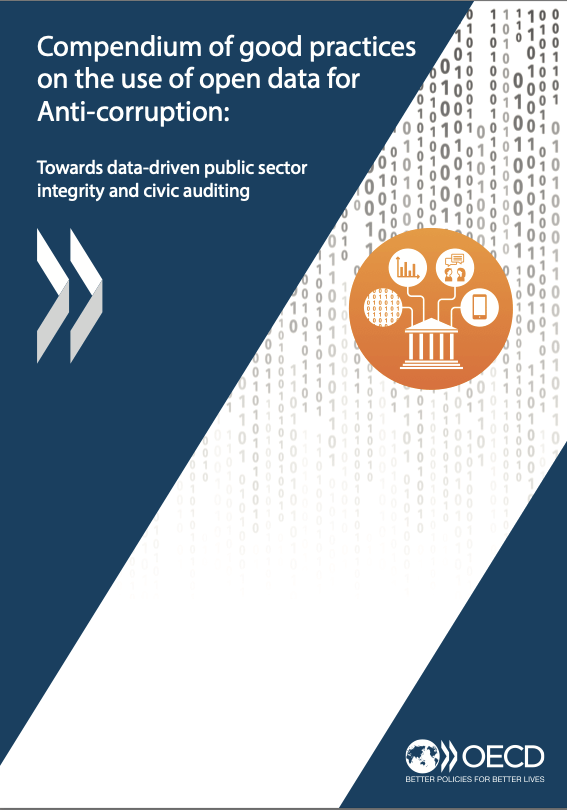
This Compendium on good practices in publishing and reusing open data for anti-corruption in G20 countries was prepared by the OECD at the request of the G20 Anti-Corruption Working Group (ACWG), which adopted the Compendium in April 2017. The Compendium serves to support the implementation of the 2015 G20 Open Data Principles for Fighting Corruption. It seeks to contribute to the work of the G20 based on the achievements of previous G20 Presidencies, and the focus on digitalization of the 2017 German Presidency.
The Compendium aims to raise awareness among policy makers and high-level public officials in G20 countries about the benefits of digital transformation of public sector institutions (a process that includes open data initiatives) for good governance, national productivity, economic development and social innovation.
It is based mainly on information collected by the OECD through the survey administered in the G20 countries for the purposes of this Compendium. Public officials from G20 countries responsible for policy areas such as anti-corruption, public procurement, open data, and customs provided input for the compendium. These include employees from Argentina, Brazil, China, France, Germany, India, Indonesia, Italy, Korea, Mexico, Russia, Spain, Turkey, the United Kingdom, and the United States.
The practices included and discussed in this Compendium, identified through the survey mentioned above, illustrate the use of open data as a driver for greater anti-corruption efforts. They are intended to show how open data principles can be incorporated into concrete initiatives. In addition, the analysis also builds on the OECD’s broader work in different policy areas (e.g., public sector integrity, open data, and public procurement). For example, information collected through previous data collection exercises has been used to illustrate country trends related to the publication of public sector information and government data. This document is divided into three main sections.
Section 1 provides a general discussion of the potential benefits of open data for increased public sector transparency and performance, national competitiveness, and social engagement. Section 2 briefly discusses the availability of public sector information in different policy domains, arguing that such availability paves the way for more publication of government data as “open by default.” Section 2 also highlights the challenges that G20 countries can face in promoting public value creation through open data in different policy domains to improve good governance (e.g., increasing public sector integrity, transparency, enhanced efforts to combat corruption). Results and good practices on publishing and reusing open data to fight corruption in G20 countries are presented and discussed in Section 3.
Publication Year: 2017
Promoter Entity: OECD
More information: https://www.oecd.org/gov/digital-government/g20-oecd-compendium.pdf






